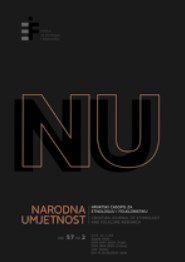FISH CANNING INDUSTRY AND THE RHYTHM OF SOCIAL LIFE IN THE NORTHEASTERN ADRIATIC
FISH CANNING INDUSTRY AND THE RHYTHM OF SOCIAL LIFE IN THE NORTHEASTERN ADRIATIC
Author(s): Tanja PetrovićSubject(s): Business Economy / Management, Economic history, Social history, Labor relations, Post-War period (1950 - 1989), Transformation Period (1990 - 2010), Present Times (2010 - today), Tourism, Socio-Economic Research
Published by: Institut za etnologiju i folkloristiku
Keywords: fish canning; labor; social rhythm; odor; industrial heritage;
Summary/Abstract: The article discusses the social world formed around canneries in small coastal and insular towns in the northeastern Adriatic. Although associated with hard, unpleasant labor and demanding work conditions, the fish canning industry, particularly in the period of late socialism, offered a framework in which a meaningful social life was organized and lived. In this way, the local impact of canneries reached much beyond providing financial means to its employees. To understand the social meaning of fish canning in the Yugoslav Adriatic, the article focuses on the relationship between the now largely vanished local fish canning industry and tourism that is increasingly becoming the dominant (and the only) source of income for local communities. Lefebvre’s concept of rhythm-analysis proves to be a productive lens to view the complex and often ambiguous relationship between the two industries, and to narrate the history of fish canning through the senses – what was seen, heard, smelled, felt. These intense, embodied, sensorial memories caution us that the dominant claims and narratives which interpret the replacement of industry with tourism (and other tertiary sector activities) as a necessary, inevitable and desirable developmental step should not be taken for granted.
Journal: Narodna umjetnost - Hrvatski časopis za etnologiju i folkloristiku
- Issue Year: 57/2020
- Issue No: 1
- Page Range: 33-49
- Page Count: 17
- Language: English

